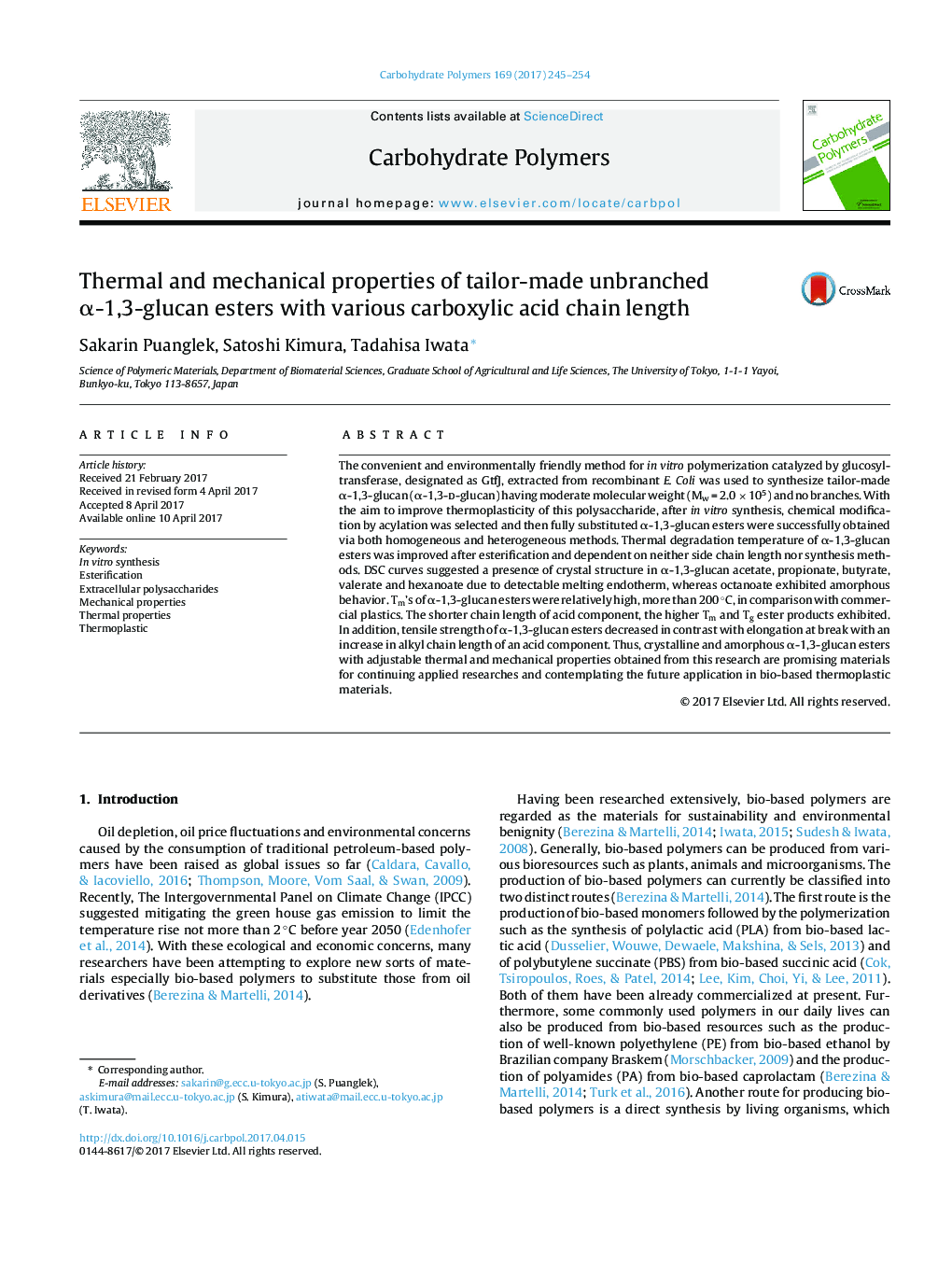| Article ID | Journal | Published Year | Pages | File Type |
|---|---|---|---|---|
| 5157196 | Carbohydrate Polymers | 2017 | 10 Pages |
Abstract
The convenient and environmentally friendly method for in vitro polymerization catalyzed by glucosyltransferase, designated as GtfJ, extracted from recombinant E. Coli was used to synthesize tailor-made α-1,3-glucan (α-1,3-d-glucan) having moderate molecular weight (Mw = 2.0 Ã 105) and no branches. With the aim to improve thermoplasticity of this polysaccharide, after in vitro synthesis, chemical modification by acylation was selected and then fully substituted α-1,3-glucan esters were successfully obtained via both homogeneous and heterogeneous methods. Thermal degradation temperature of α-1,3-glucan esters was improved after esterification and dependent on neither side chain length nor synthesis methods. DSC curves suggested a presence of crystal structure in α-1,3-glucan acetate, propionate, butyrate, valerate and hexanoate due to detectable melting endotherm, whereas octanoate exhibited amorphous behavior. Tm's of α-1,3-glucan esters were relatively high, more than 200 °C, in comparison with commercial plastics. The shorter chain length of acid component, the higher Tm and Tg ester products exhibited. In addition, tensile strength of α-1,3-glucan esters decreased in contrast with elongation at break with an increase in alkyl chain length of an acid component. Thus, crystalline and amorphous α-1,3-glucan esters with adjustable thermal and mechanical properties obtained from this research are promising materials for continuing applied researches and contemplating the future application in bio-based thermoplastic materials.
Keywords
Related Topics
Physical Sciences and Engineering
Chemistry
Organic Chemistry
Authors
Sakarin Puanglek, Satoshi Kimura, Tadahisa Iwata,
